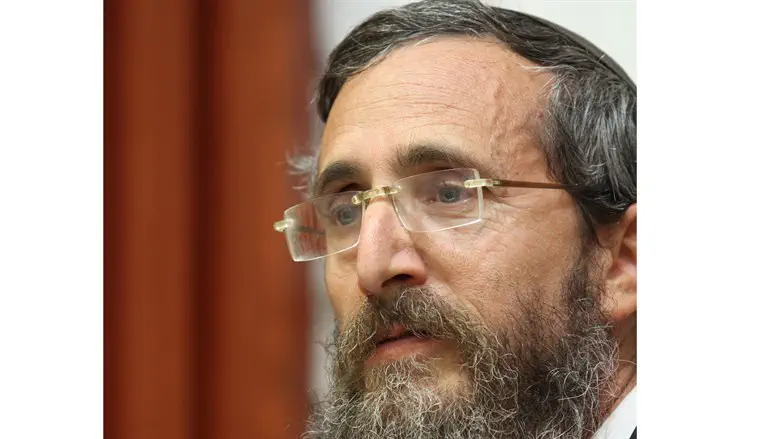
Last week, I participated in a demonstration outside the Eshel prison in support of Amiram ben Uliel, found guilty by the Israeli courts of murder in the Duma arson case even though his confession was obtained under torture...I told those protesting with me: "We hope that our love will pass the prison walls and reach through to him."
The injustice in Ben Uliel's conviction cries out from the earth. A confession obtained through torture is inadmissible. No human being can withstand torture for as long as Amiram did. Relying on such a confession is a crime. It is a miscarriage of justice, especially since there is absolutely no evidence of any kind linking Amiram to this crime (of arson) other than his forced confession.
I told those preseent: "It is not politically correct to be here today. Who wants to be on the side of the hilltop youth? Of people who get into trouble with the law? But I am proud to be on the side that demands truth; that demands a fair trial. We hope that our love for Amiram will overcome these prison walls and reach his heart. No one will break his great spirit and the pursuit of truth and justice. I call on all government ministers to raise Amiram's case to a central issue in their agendas."
Unfortunately, we know that things are far from just in our judicial system. There is a lot of corruption, evil, and un-Jewish immorality suffused with prejudices against innocent people whose only crime is their appearance or religious beliefs. Our justice system speaks in the name of justice but is in reality, perverse. Amiram's confession would have been invalidated in any democratic country. The perception among the general public is that the Shin Bet is a holy institution. But in reality, their persecution of Amiram is based on fabrications.
Everyone should think of Amiram as his own son. How would they feel if their son was found guilty of murder and given three life sentences without one iota of evidence other than a confession based on torture? It is therefore a huge mitzvah for every Jew to become a partner in this struggle.
The Shabak put him in solitary confinement, in a cell with an open toilet, so that he cannot study Torah. Where does this evil come from? What is the source of this inhumanity? It stems from the fact that they personally hate the hilltop youth because they look different (with their large kippot and long peyot). Is this a reason to treat someone with such vicious cruelty? After seven years of horrific solitary confinement, the Shabak continues to refuse to allow Amiram to be transferred from his solitary cell to a religious wing where he can enjoy the most basic human right of social interaction, and the religious rights of praying in a minyan, learning in a group, and celebrating holidays with other Jews. Their firm refusal to permit his modest request for basic humanity is cruel abuse for its own sake.
Ben Uliel is in extremely difficult prison conditions in the Eshel prison in the south of the country. He is incarcerated in a guarded wing, in a lone cell, without the right to interact with other prisoners. He is only permitted to leave the cell for two hours a day to exercise alone in a closed yard. His family is allowed to visit him once every two weeks for about half an hour and communicate through a glass partition. In addition, he is forbidden to go to the synagogue and participate in prayer services, which is a basic religious right in any civilized country. He is only allowed to keep five holy books in his cell.
Recently, after seven years, Amiram was permitted to make phone calls to family members. The decision was based on the orders of Itamar ben Gvir, Minister of National Security, who ruled that it is inconceivable that Arab terrorists enjoy more favorable conditions than Jewish security prisoners. As a result, the security system decided to allow Amiram to make phone calls to a number of people, including his wife and young daughter.
Translated by Chava Nechama from an Arutz Sheva Hebrew site interview with the rabbi.
Rabbi Dovid Fendel is Rosh Yeshiva of Yeshivat Sderot bordering the Gaza Strip, Dayan in its Rabbinic Court and recipient of the Moskowitz Prize for Zionism for his steadfastness and public service during the difficult periods faced by the city on which thousands of rockets rained down from Gaza.